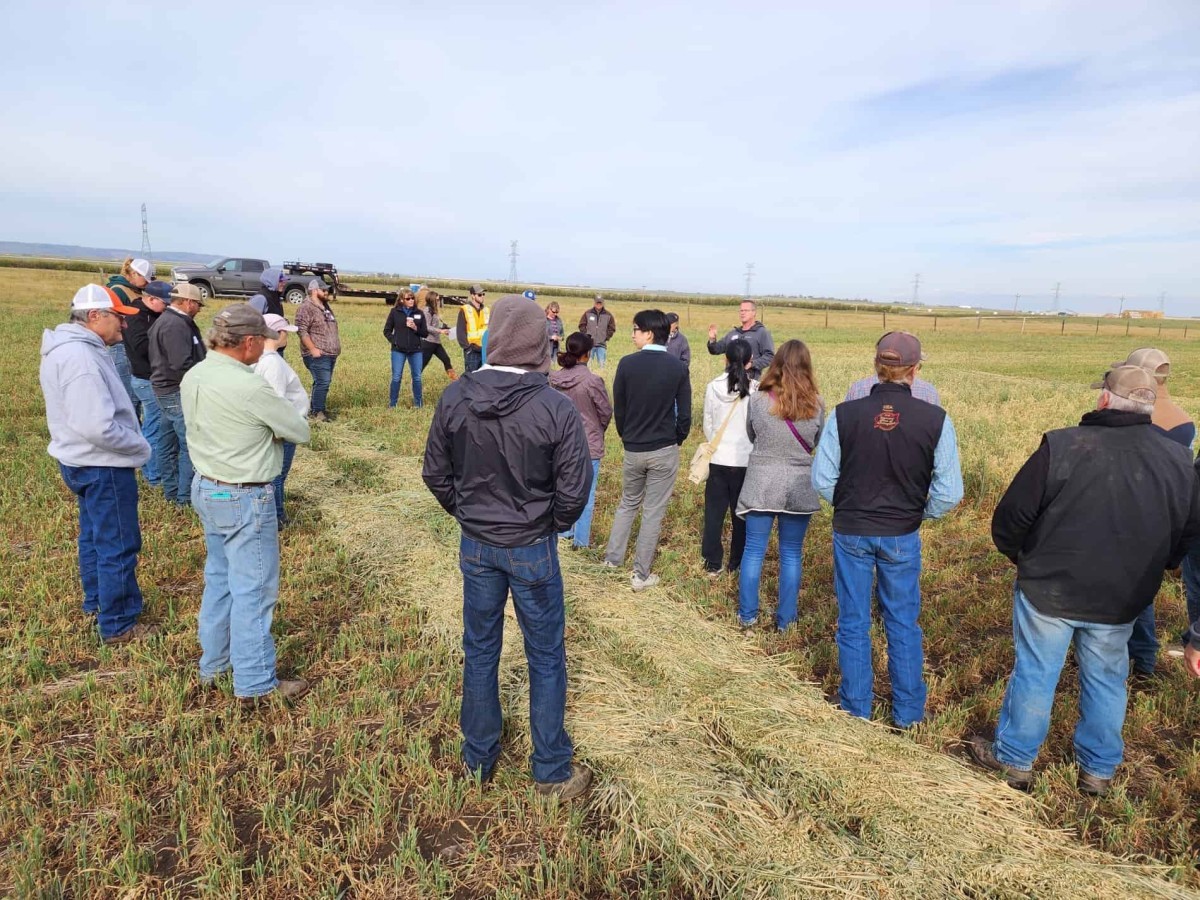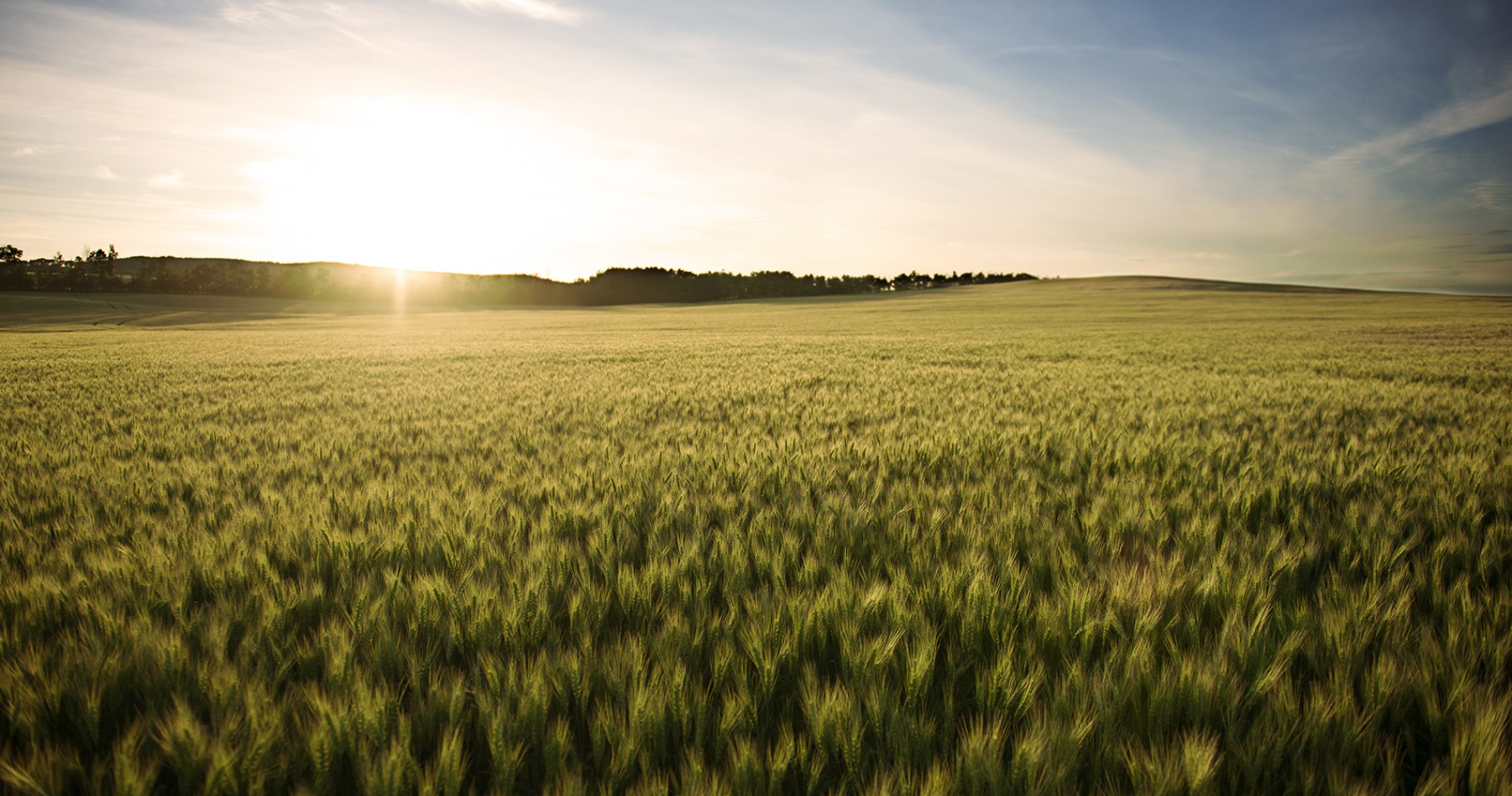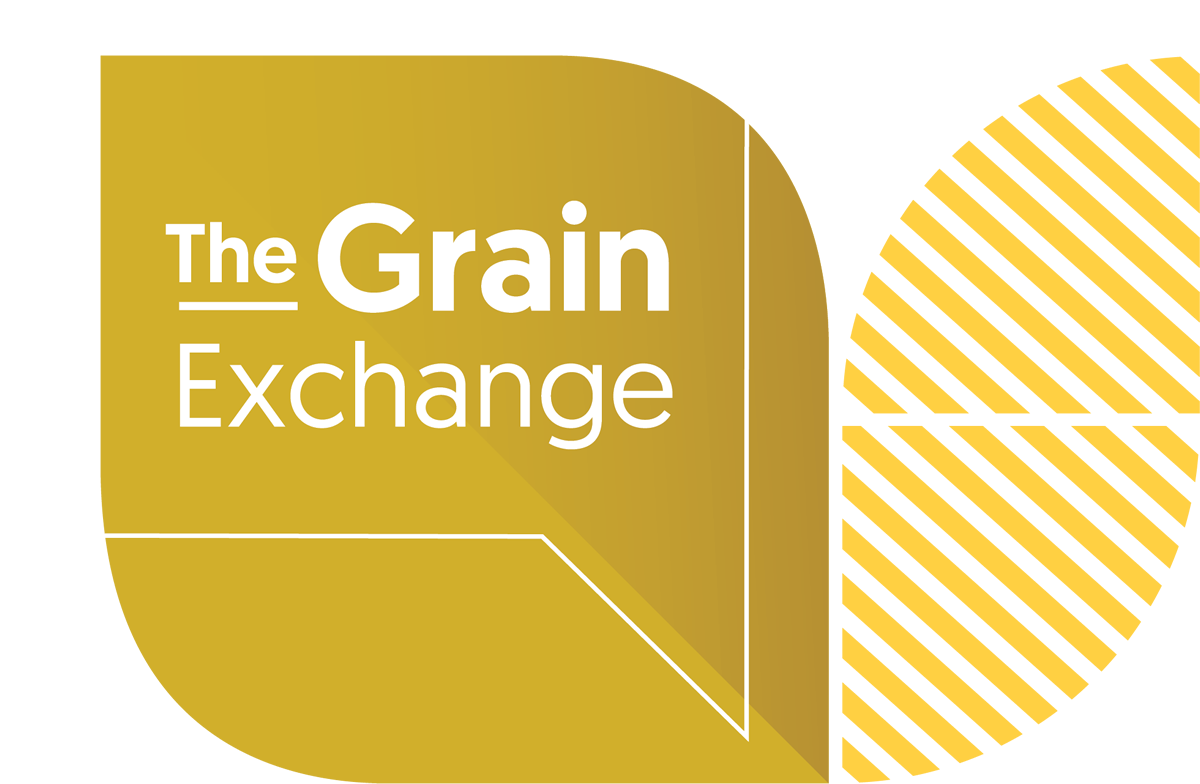Alberta AgriSystems Living Lab - Southern Alberta Field Day

September 19, 2023 was a picture-perfect beautiful fall day in Southern Alberta for producers and industry experts to experience some growing season learnings from two of the Alberta AgriSystems Living Lab (AALL) core producers, Glen and Kelly Hall, and Susan Heather.
Field Day participants spent the morning touring the Hall operation to experience hands-on learning related to polycultures and witness the realities of implementing new beneficial management practices (BMPs) in a year with challenging climatic conditions throughout the province.
“Sometimes mother nature throws you a curveball and doesn’t stop,” says Kelly. The persistent dry conditions in Southern Alberta in 2023 and trying to time seeding with moisture was a challenge for the Halls to establish their polyculture of oats, peas and sunflowers. They shared their previous experiences with polycultures and how the practice has benefited their operation’s bottom line, soil health and cattle productivity. “We took the leap a few years ago and sold the iron off (silage wagon). We wanted the cattle to feed themselves and leave the soil in better condition,” adds Glen. Despite the dry conditions, uneven emergence of certain species and grasshopper pressure, the Halls are already planning for polyculture in the 2024 growing season.
Having experienced growing conditions on dry land, the participants headed east, touring Heather’s Italian ryegrass/wheat intercrop on irrigated land.
While this location didn’t experience significant challenges with soil moisture due to irrigation, there was a learning curve with seeding timing and understanding what equipment worked best. “We were looking for a crop that will keep growing and protect our soil from erosion and we also have a need to make a few more tons off the land we already have rather than trying to expand our land base,” said Heather. Generally, this project will measure the impact of the cover crop on soil health and carbon sequestration.
Agriculture and Agri-Food Canada personnel, including Dr. Henry Chau, Dr. Sandra Yanni, and Darren Bruhjell, among others, also attended, sharing metrics, data and samples being collected from project sites across the province.
While this data is currently being analysed, participants were careful to share early practical realities of polycultures and cover crops being beneficial management practices. “How transferable are these results to other producers? We have other cover crop sites across the province to help us answer this question,” said Bruhjell.
The researchers also shared the functionality of equipment installed on the farms, such as plant root stimulator probes, greenhouse gas chambers, soil moisture and temperature monitors and others.
Along with the choice of crops for polycultures, participants engaged in discussion on seeding rates, and maximizing benefits to cattle during winter grazing.
At lunch, attendees had the opportunity to listen to presentations from Graydon Garner from Ducks Unlimited and Giselle Ulrich from Alberta Agriculture and Irrigation. Garner shared information on the available funding opportunities from Ducks Unlimited and how to manage wetlands in the dry conditions, relatable for Albertan farmers in 2023.
Ulrich informed producers how they could be eligible for funding projects aimed at implementing beneficial management practices like polycultures and cover cropping through the Resilient Agricultural Landscape Program (RALP) via the Sustainable Canadian Agricultural Partnership (SCAP).
The Alberta AgriSystems Living Lab has more growing seasons and projects in the years ahead to help Alberta’s producers understand the value and impact of beneficial management practices. Projects and practices are examined from a scientific perspective of carbon sequestration and greenhouse gas emissions reduction but also from an economic and practical perspective.
AALL is led by Alberta Beef Producers and supported by multiple industry partners including Ducks Unlimited, the Beef Cattle Research Council, Alberta Cattle Feeders’ Association, Corteva Agriscience, Alberta Grains, Alberta Pulse Growers, Alberta Canola Producers Commission, Canola Council of Canada, Alberta Beekeepers Commission, Alberta Conservation Association, Verified Beef Production Plus; with research support from Agriculture and Agri-Food Canada and the University of Alberta. The project is funded, in part, by Agriculture and Agri-Food Canada through the Agricultural Climate Solutions – Living Labs program.
For more information on the AALL check out agrisystemsll.ca/resources
For more information on funding opportunities from Ducks Unlimited check out ag.ducks.ca/programs/alberta/
For more information on funding from RALP check out alberta.ca/resilient-agricultural-landscape-program

